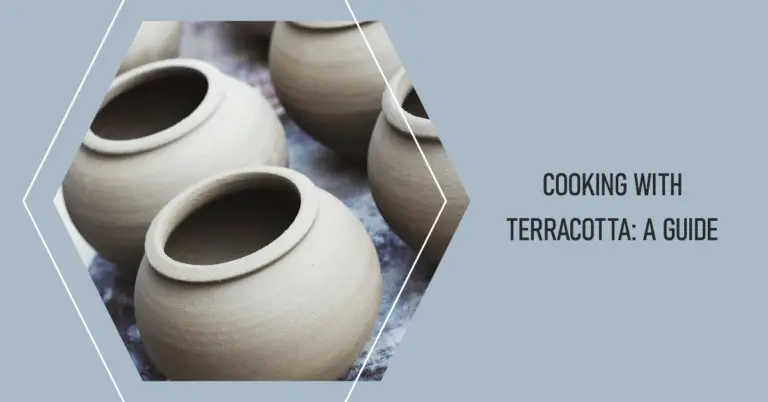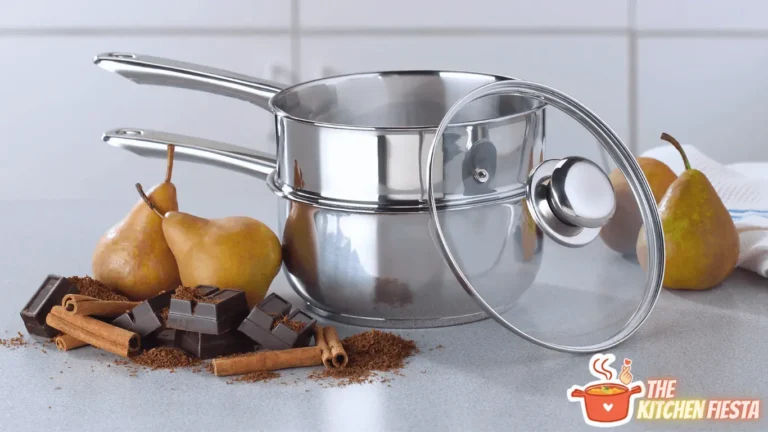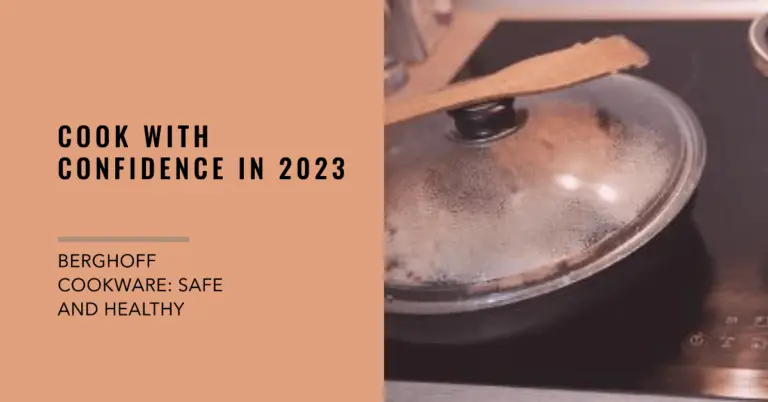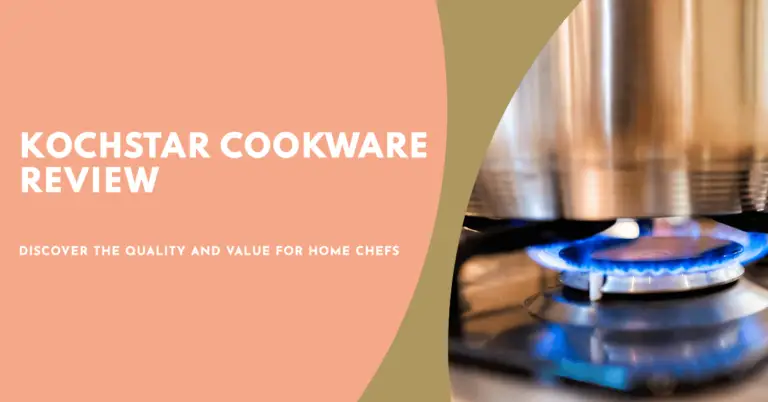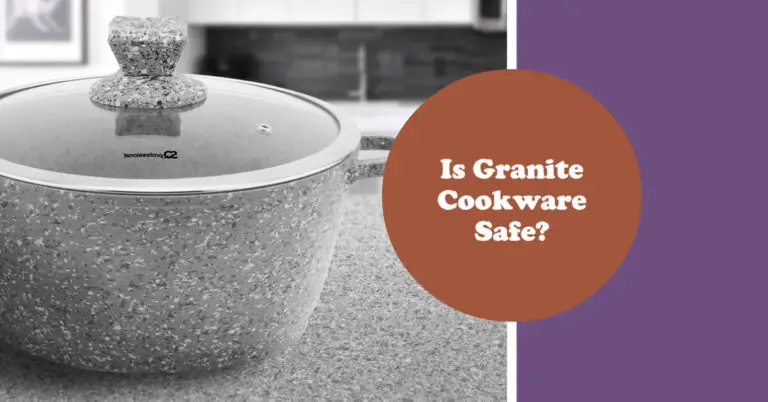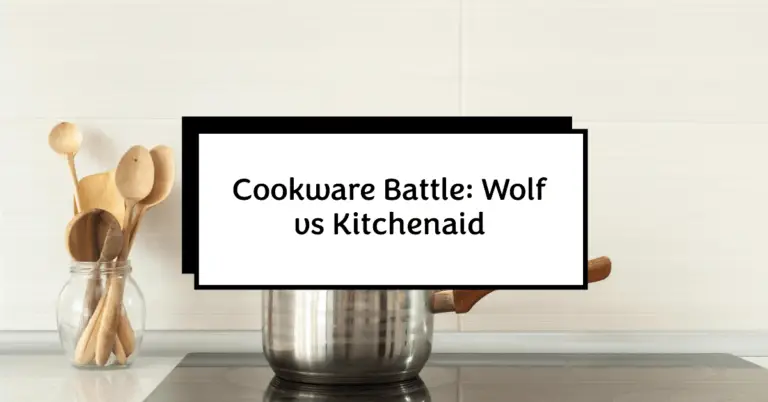Is Aluminum Cookware Banned in Europe? The Controversy Explained
Aluminum cookware is not actually banned in Europe at this time. However, there is an ongoing debate around the safety of aluminum cookware and whether it should be prohibited due to potential health risks. In this article, we’ll explore the controversy around aluminum cookware in Europe, looking at the current regulations, research on aluminum leaching, potential links to Alzheimer’s disease, and alternatives to traditional aluminum pots and pans. While aluminum cookware remains legal in the European Union, there are valid concerns about its safety that warrant a closer look.
Understanding the Aluminum Cookware Controversy
Aluminum isabundantly present in our daily lives, from soda cans to tinfoil to cookware. It’s a lightweight, inexpensive, and highly conductive metal that seems ideal for cooking utensils. However, some studies have raised concerns that aluminum can leach from cookware into food during the cooking process, especially when cooking acidic foods like tomatoes or lemon.
This had led some consumer groups and scientists to call for a ban on aluminum cookware in Europe, citing potential health risks associated with ingesting aluminum. However, the link between aluminum exposure and conditions like Alzheimer’s remains complex and unproven. Regulators have not instituted an outright ban, but concerns linger among consumers.
So should you throw out your aluminum pans? Is aluminum cookware banned in Europe? Let’s take a factual look at the debate.
Is Aluminum Cookware Actually Banned in Europe?
The short answer is no: there is currently no EU-wide ban on aluminum cookware. Aluminum pots, pans, baking trays, and other cookware remain legal for sale and use throughout European countries. No member nation of the EU has yet instituted an outright ban on aluminum cookware either.
However, some individual countries have taken steps to discourage the use of aluminum cookware based on health concerns:
- In France, the government health agency ANSES warned consumers against prolonged use of aluminum cookware in 2011. However, there is no ban in force.
- Germany has set voluntary standards limiting the amount of aluminum that can leach from cookware into food. There have been calls for more stringent rules.
- The United Kingdom Food Standards Agency issued a study finding no conclusive link between aluminum cookware and health conditions. But they still suggest minimizing aluminum exposure as a precaution.
So while aluminum cookware hasn’t been pulled from European store shelves and kitchens, there are legitimate concerns about its safety. The precautionary principle has led some public health agencies and non-profits to advocate for restrictions or bans until more conclusive research is available.
Aluminum Safety Concerns and Research
Where does this apprehension around aluminum cookware come from? Since the 1960s, researchers have raised concerns about the migration of aluminum into food during the cooking process.
Some studies have found alarmingly high levels of aluminum leaching, especially when cooking acidic ingredients like tomatoes, citrus, or vinegar. Other research has downplayed the risk, finding minimal aluminum absorption from cookware. The possible health impacts are also debated. Let’s look at the key issues:
Aluminum Leaching from Cookware
Aluminum dissolves fairly easily into food, especially given the high heat and acidity present during cooking. Some research has detected very high levels of leached aluminum:
- Up to 5mg aluminum per kg into an acidic sauce cooked for 30 minutes.
- 14mg per kg leached into tomato sauce after two hours.
- 100mg per kg into acidic lemon juice after 24 hours.
These levels are far beyond the tolerable weekly intake set by EU food safety regulators at 1mg/kg body weight. Clearly, aluminum cookware has the potential to leach high amounts of aluminum under the right cooking conditions. This has pushed health agencies like Germany’s Federal Institute for Risk Assessment to establish voluntary standards limiting the rate and amount of leaching.
However, other studies have found minimal leaching from aluminum pots and pans. The Food Standards Agency in the UK analyzed aluminum cookware under typical cooking scenarios and found little cause for concern:
- Boiling tap water for 15 minutes leached only 0.1mg per liter aluminum.
- Cooking an acidic tomato sauce for 30 minutes leached 0.9mg per liter.
- Roasting a chicken for 1.5 hours added only 0.2mg aluminum per liter.
So real-world aluminum exposure may be less than alarmist laboratory findings. But the conflicting data means the safety debate rages on.
Is Aluminum Linked to Alzheimer’s Disease?
The biggest health fear around aluminum exposure is its potential connection to Alzheimer’s disease. Alzheimer’s leads to a dangerous buildup of abnormal proteins in the brain, killing brain cells. Autopsies consistently show higher than normal levels of aluminum in the brains of Alzheimer’s patients. This has led some researchers to speculate that aluminum exposure increases the risk of Alzheimer’s over the long term.
However, there is no scientific consensus on this theory. Several major studies have failed to confirm any causal link between aluminum and Alzheimer’s disease:
- A 2006 research review found the connection unproven despite circumstantial evidence.
- Population studies found similar rates of Alzheimer’s between areas with high and low aluminum in drinking water.
- No increased dementia risk was found in patients treated with aluminum antacids.
- Occupational aluminum exposure showed no effect on cognitive decline in workers.
So while aluminum buildup in the brain is directly observable in Alzheimer’s patients, there is still no definitive evidence proving it is a cause rather than effect of Alzheimer’s onset and progression.
Nonetheless, some scientists maintain that aluminum exposure through cookware and other sources contributes over a lifetime to neurotoxic effects. The lack of a smoking gun makes regulations difficult, but the circumstantial risk has raised valid concerns among European consumer groups.
Aluminum Cookware Regulations in Europe
With so much uncertainty around the health effects of aluminum, how have European governments and institutions responded? Let’s look at some of the key aluminum cookware laws and regulations in the EU.
- The European Food Safety Authority concludes that some aluminum exposure exceeds safe limits for certain high-risk groups like infants and children on restricted diets. But they found no broad risk for adults under typical consumption. They recommend further study rather than sweeping bans.
- France‘s food safety agency ANSES issued a report advising consumers against prolonged use of aluminum cookware, especially for acidic foods. They cite potential health risks but have not banned aluminum cookware outright.
- Germany maintains a voluntary standard limiting aluminum leaching from cookware to 5mg per kg of food during initial use and 0.5mg per kg thereafter.
- The UK Food Standards Agency relies mainly on consumer education, recommending minimizing aluminum exposure from cookware as a precaution while acknowledging the lack of firm evidence proving harm.
So we see European authorities walking a line between acknowledging potential risks and preventing panic over unproven health threats. There are currently no mandatory pan-European regulations, only national recommendations and standards. But the precautionary approach has put pressure on consumers and manufacturers to consider alternatives.
France’s Stance on Aluminum Cookware
France has taken perhaps the strongest stance against aluminum cookware in Europe without enacting an outright ban. In 2011, ANSES issued a report recommending that consumers avoid aluminum cookware, especially when cooking acidic or salty foods that increase leaching.
They based this on toxicological studies showing potential neurodevelopmental effects on children from ingesting aluminum. However, their report acknowledged the lack of definitive evidence proving harm to adults at typical exposure levels.
Rather than instituting a ban, they have focused on consumer education on proper use to limit aluminum ingestion. They recommend avoiding aluminum cookware when cooking anything acidic, salty or moist for more than 1 hour, using low heat, and monitoring for degradation.
While some activist groups have lobbied the French government for bans or laws limiting aluminum cookware, none have gained traction so far. But France’s consumer advisories have certainly raised public awareness of the potential risks.
Alternatives to Aluminum Cookware
With aluminum under scrutiny, what options do environmentally-conscious cooks have? Many alternative cookware types tout their safety over traditional aluminum pots and pans:
- Stainless steel is non-reactive and does not leach chemicals. It’s durable but not the best heat conductor.
- Cast iron can leach some iron but provides natural non-stick properties with seasoning. It’s heavy but nearly indestructible.
- Ceramic coatings are inert and non-toxic but may wear out over time. Lightweight but not very durable under heat.
- Copper excels at conduction but requires meticulous re-tinning. Also expensive but prized for performance.
- Glass and enameled cookware excel at non-reactivity but can shatter with rapid temperature changes.
So while many alternatives exist, none are perfect across all criteria. Stainless steel likely represents the best mix of safety, durability, and performance for most home cooks wanting to minimize aluminum intake.
Conclusion
While aluminum is not completely banned from European kitchens yet, its safety will continue being questioned. Aluminum likely does leach into acidic and salty foods to some degree, but the health effects in non-occupational settings remain uncertain rather than alarming.
EU regulators and national food agencies currently rely on consumer education and voluntary standards rather than bans to balance safety with practicality. But concerns around aluminum’s neurodevelopmental effects persist, even if a definitive link to Alzheimer’s remains unproven.
Conscientious cooks wanting to exercise caution can minimize aluminum exposure by choosing non-reactive alternatives like stainless steel or cast iron cookware. But occasional use of aluminum pans, trays, or foil is unlikely to carry significant health risks for most adults. Moderation and proper use limits aluminum leaching.
So aluminum cookware retains its legal status in Europe for now. But its controversial reputation seems unlikely to fade given lingering concerns from scientists and consumers alike. Regulators walk a fine line between fanning fears and ignoring potential risks to public health. For now, educated consumers rather than sweeping reform shape the trajectory of aluminum cookware in Europe.

